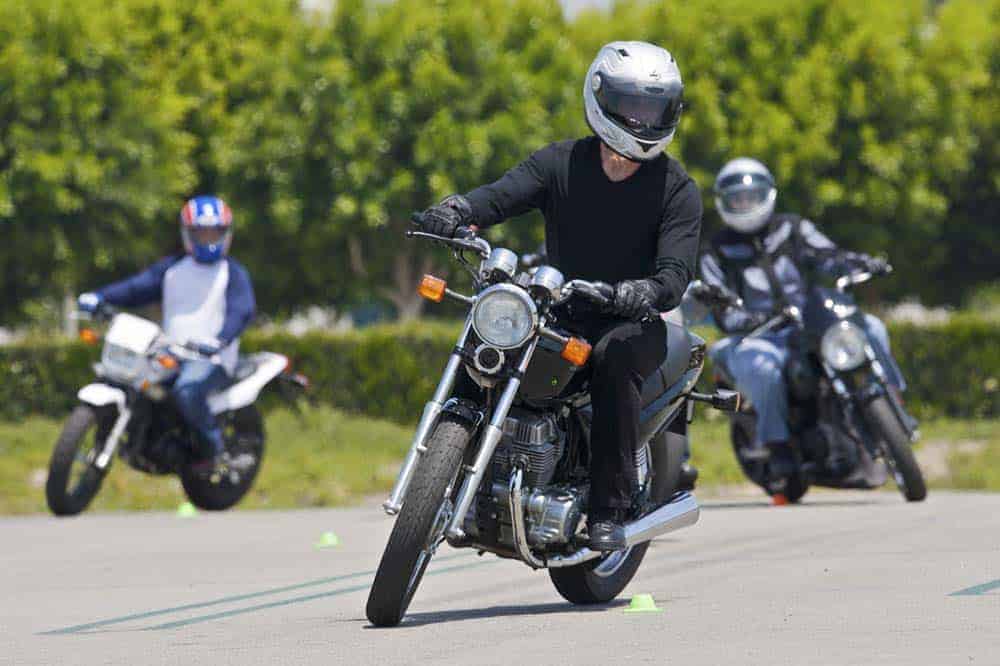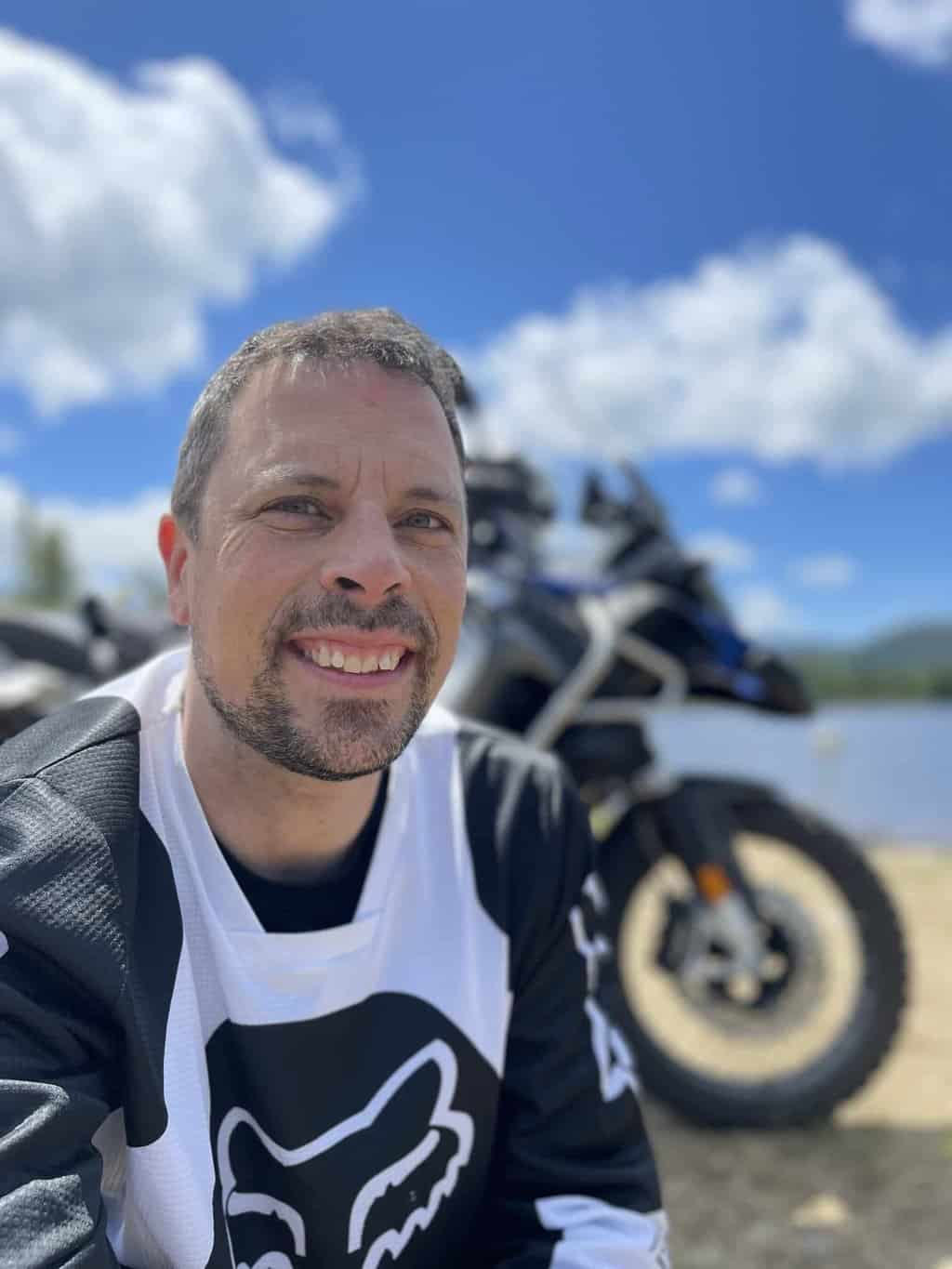If you have been considering learning how to ride a motorcycle or have been riding a motorcycle for any period of time, it is pretty much guaranteed—you must have heard about the MSF courses.
MSF courses are highly recommended, and new motorcycle riders are strongly encouraged to take them. So one question is oftentimes brought up.
Is the MSF course worth it? The MSF course is worth taking by new motorcycle riders and returning riders. MSF courses are worth taking because they introduce motorcycle riders to the fundamentals and the best safety practices while riding a motorcycle. There are also advanced MSF courses that are worth taking by even experienced motorcycle riders.
Table of Contents
If you want to learn more about MSF courses, continue reading below. You will find all your questions about MSF courses, and if they are really worth it, answered.

Is an MSF course worth taking?
Do you know how long it takes to get good at riding a motorcycle? It takes a lot of time. In fact, that learning process will not end your whole life.
Motorcycles give an unparalleled sense of freedom and are a ton of fun. Nothing else gets quite close to that feeling of riding a motorcycle.
However, motorcycles have another fairly unpleasant side—the consequences of crashing with your motorcycle. Although car crashes are way more common, car drivers usually get away with fewer injuries.
Motorcycle crashes, on the other hand, are usually more severe. Even low-speed crashes can lead to some serious injuries. The odds of getting injured or killed in a motorcycle crash are several times higher than those in a car crash.
This means that it is our responsibility to know how to ride our motorcycles safely and how to avoid some of the common mistakes. The more experience you manage to accumulate in a controlled environment before hitting the road, the better. Taking the MSF course will prepare you for some of the challenges of moving on two wheels and help you feel more confident in your abilities.
In addition to that, there are different types of MSF courses, some are geared towards beginners, while others focus on more advanced riding techniques and exercises.
There are also MSF courses that are tailored to returning riders, scooters, and even three-wheel motorcycle riders.
The data suggest that, although not statistically significant, overall trainers motorcycle riders tend to have both fewer and less severe accidents over time.
The difficulty in evaluating how effective motorcycle training courses are is widely due to the complexity of the problem.
There are different curricula, and the motivation of the different riders is hard to measure. Let’s not forget that not all teachers are the same and can offer the same quality of teaching and attention to their students.
However, people who took motorcycle safety courses were shown to wear safety gear more often than those who never took the course. (Licensed motorcycle riders are also usually less likely to get into a motorcycle crash.)
Is the MSF course worth taking if you already have a motorcycle license?
If you already have a motorcycle license and are riding your motorcycle often, then taking an MSF course may not be worth your while. MSF courses are geared towards beginners and returning riders who have not ridden their motorcycle in a while and would like to brush up on their skills.
If you haven’t ridden a motorcycle in several years, this does not necessarily mean you will forget how to ride your motorcycle. However, you can get a little rusty and start losing your reaction time and ability to maneuver with ease and properly use some of the more intricate controls.
An MSF course may be worth taking in this case—especially if you do not feel comfortable hitting the road yet.
If you have been riding for a few years, then taking the advanced MSF course may be worthwhile. You will most likely benefit from the beginner courses, but the more advanced courses are a worthy investment in your safety.
What to expect from taking an MSF course?
Even if you see the benefits of taking an MSF course, you probably still have plenty of questions that need answering.
Let’s take a more in-depth look at what an MSF course is and what you can expect from it.
Who are MSF courses best for?
MSF stands for Motorcycle Safety Foundation. MSF courses are designed for new motorcycle riders and as a refresher course for returning riders who may not have ridden their motorcycle in a while.
That being said, even motorcycle riders who ride often will benefit from the more advanced MSF courses and are worth taking every once in a while.
How long is an MSF course?
MSF courses do not last a lot of time.
MSF courses are usually 18 hours in total with 3 hours of online training, 5 hours of classroom activities, and 10 hours of riding instructions and exercises. MSF courses, on average, last between 2 to 3 days.
Advanced MSF courses, on the other hand, can last between half to one day.
How much does an MSF course cost?
MSF courses usually cost between $50 and $450 depending on where you live. If you go through the DMV, your community college, or university, MSF courses are usually cheaper, and the cost for the course can be between $50 and $150. In certain cases, the MSF course can be completely free depending on where you live, or if you are going via the army.
See article: How much do MSF courses cost?
What does an MSF course cover?
The MSF course is a combination of online training, classroom instructions, and practical riding time.
The classroom instructions aim to cover some basics using audio-visual learning aids, which may include training videos, tests, group assignments, and more.
The practical riding time consists of learning the basics of operating and maneuvering with a motorcycle. Some of the things and skill you will learn are:
- Basic control operation and maneuvers.
- Cornering skills.
- Clutch and throttle operation and coordination.
- Gear shifting.
- Proper acceleration and braking.
- Braking and swerving.
- U-turns.
- Zig-zags.
- Managing obstacles.
Each exercise will always begin with some explanation and demonstrations of what you will have to do. Each rider is provided with individual feedback during the whole course.
Make sure you know where the MSF course takes place. Being late is not considered good etiquette, and knowing where you are going and how long it takes to get there will prevent that.
What do you need to bring to an MSF course?
MSF does provide motorcycles. Usually, each student is assigned an individual motorcycle. MSF will often have several different types and sizes of motorcycles.
MSF also provides helmets, but if you already have one, it is recommended to use your own. Your helmet will be more comfortable, a better fit, and more pleasant to wear.
To an MSF course, you will most likely be required to bring motorcycle gloves, durable and secure over-the-knee footwear, a long-sleeve jacket, and long pants.
In order to find what you need to bring an email or call the institution, you are taking the course through. (Some MSF courses may not provide a helmet, for example.)
Does the MSF card expire?
After passing the MSF course, you will be given a card stating that you have passed the course. MSF cars are important in getting an endorsement and can overall affect your insurance discounts.
MSF cards do expire. On average, MSF cards are valid for 1 to 3 years, depending on where you live. After the MSF card expires, you will have to retake the MSF course if you want to gain the benefits of having an MSF card.
In addition to that, some areas may require you to have a valid MSF card combined with a valid license in order to ride your motorcycle.
Do you have to take an MSF course?
Whether you have to take an MSF course will depend on where you live. Some places require you to pass an MSF course to get your license and even require you to take a new MSF course every time your MSF card expires. In other areas passing an MSF course may not be necessary; however, doing so is highly recommended.
Can you take an MSF course in a different state?
Overall it is very unlikely that an MSF card will be valid and recognized out of state.
But there is a little caveat.
The regulations and laws from state to state are very different. In some states, they may recognize and accept your MSF completion card while others will not, and you will be required to pass an MSF course there. The best course of action is to check the MSF website for additional information and speak to your license-issuing state.
Can you fail the MSF course?
In general, MSF courses are hard to fail. However, it is possible to fail the MSF course.
As long as you are focused on the exercises at hand and have a good idea of what you have to do and operate and maneuver your motorcycle safely, you should be okay. You get more than enough time to exercise.
Do not get too worried about the MSF course. They are people who have passed their MSF course even after dropping their motorcycle.
FAQ’s
- Is an MSF course worth taking?
- This question addresses the value of taking Motorcycle Safety Foundation (MSF) courses for individuals who are considering learning how to ride a motorcycle or have been riding for a while. It highlights the benefits of MSF courses in teaching fundamental skills and safety practices, both for beginners and experienced riders.
- Is the MSF course worth taking if you already have a motorcycle license?
- This question focuses on whether individuals who already possess a motorcycle license can benefit from taking an MSF course. It explains that while experienced riders might not need the basic courses, advanced courses can still offer valuable insights and enhance safety.
- What to expect from taking an MSF course?
- This question outlines the content and structure of MSF courses. It covers topics such as course duration, course components (online training, classroom instruction, and practical riding), the types of skills taught, and the practical items participants need to bring.

Meet Simon, the 46-year-old aficionado behind YourMotoBro. With a lifelong passion ignited by motocross dreams and a Canadian Tire bicycle, Simon’s journey has been nothing short of extraordinary. From coaching underwater hockey to mastering muddy terrains, he’s an authority in thrill and adventure. Certified as an Off-Road Vehicle Excursion Guide and trained in Wilderness First Aid, Simon’s love for bikes is as diverse as his collection—from a robust BMW GSA R1200 to the memories of a Harley Davidson Night Train. By day a respected telephony consultant, by night a motorcycle maestro, Simon’s tales are a blend of expertise, resilience, and undying passion. ?️✨
